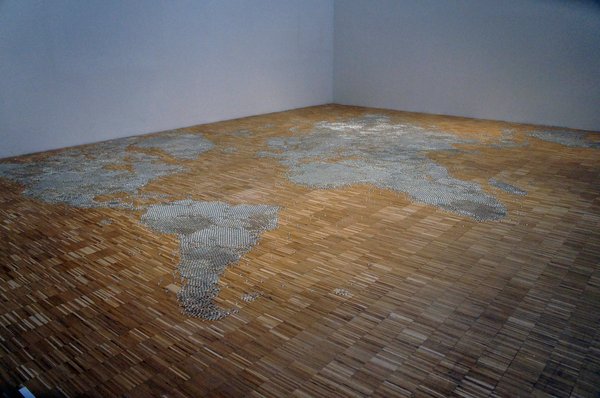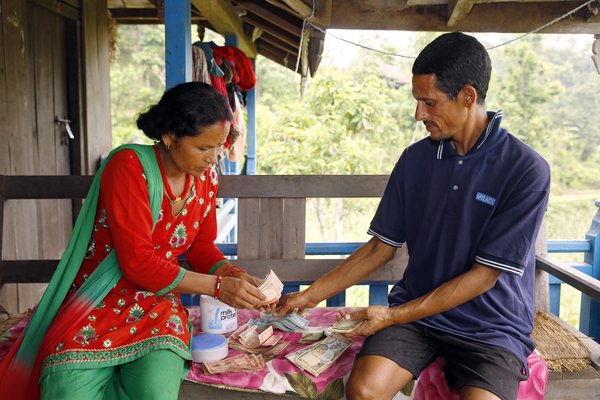
Photo by Arpit Rastogi on Unsplash.
In a recent book chapter, Karl Landström, with MIDEQ Director Heaven Crawley, analysed recent debates amongst migration scholars of how their field have been shaped by contemporary as well as historical injustices. This blog introduces one part of these debates, namely recent critiques of Eurocentrism in migration research, and discusses it in relation to recent scholarship in feminist philosophy.
Introduction
The ethics of our knowledge practices have become increasingly scrutinized in academic debates. In feminist philosophy the development of concepts such as epistemic injustice and epistemic oppression have given rise to a constantly growing body of research studying how social and structural factors shape our knowledge practices with concomitant ethical and knowledge ramifications. Relatedly, calls for more ethical, inclusive, and just research practices have become commonplace across the social sciences and the humanities.
Eurocentrism
In recent years topics such as Eurocentrism, decolonisation, and decentring have been the subject of increasing interest in these debates, including within the field of migration research. It is widely acknowledged, for example, that the study of migration has been dominated by scholarship produced in the Global North and that the theoretical frameworks, methodological approaches and underlying assumptions of migration studies are primarily based on European traditions. Migration scholars, such as Elena Fiddian-Qasmiyeh who challenge the Eurocentrism of the field, argue that the “classical” questions, topics, and methodologies that migration research has privileged is largely based upon the categories, concepts and priorities of dominant actors in the Global North. In privileging these priorities, concepts, and theoretical and methodological frameworks, other priorities, perspectives and actors have been marginalised and overlooked such as those of the Global South. Critics of Eurocentrism in migration research argue that these marginalisations manifest in a number of ways, including who gets to take part in research endeavours and what topics and areas are being studied. Further, critics argue that the Eurocentrism of migration research has resulted in knowledge gaps in the areas that have historically been marginalised such as migration between the countries of the Global South.
At the same time Eurocentrism has drawn interest from philosophers, particularly philosophers of science and social epistemologists. For example, Linda Martín Alcoff argues that Eurocentrism constitutes an ‘epistemology of ignorance’, that serves the function of legitimising a lack of research beyond one’s immediate domain and interests, and thus producing ignorance of those areas that lay beyond these domains. Others, such as Lerato Posholi, argue that Eurocentrism constitutes a form of epistemic oppression. That is a form of systematic exclusion of certain viewpoints, positions and communities that produces deficiencies and gaps in our shared knowledge.
Troublingly, Posholi also illustrates how Eurocentrism not only gives rise to epistemic issues, problems for our understanding and knowledge, but also is an ethical issue. She argues that Eurocentrism produces epistemic injustices, a form of injustice that wrongs certain groups and/or individuals in their capacity as knowers. Epistemic injustices can take many different forms and have been identified in a range of different domains, including within academic research practices and governance. Lerato argues that Eurocentric knowledge production ought to be thought of as giving rise to epistemic injustices. It leaves those whose priorities, interests, and knowledge are overlooked and deprioritised unfairly excluded and with epistemic resources that are inadequate for understanding, theorising, and communicating their positions and experiences. We can also think of the knowledge gaps produced by Eurocentic knowledge production processes as a form of distributive epistemic injustice as ‘epistemically valuable goods’ such as information and research findings, are unevenly and unfairly distributed across different domains, geographical areas, and social groups.
While most migration scholars engaging in the debates pertaining to Eurocentrism in migration research do not adopt concepts from analytic feminist epistemology such as epistemic injustice or epistemic oppression, these concepts can be employed to emphasise what is at stake both ethically and epistemically in these debates. As Heaven Crawley and myself recently argued, analysing contemporary issues in migration research through these normative concepts can help us identify ways to address the structural inequalities with which the production of migration knowledge is often associated.
Redressing Eurocentrism
It is important to note that migration scholars have not only critiqued Eurocentric migration research, but also developed research approaches that aspire to redress Eurocentrism. Fiddian-Qasmiyeh outlines three ways in which migration scholars have attempted to do so. First, some migration scholars have examined the applicability of ‘classical’ concepts and theoretical frameworks in migration research in domains outside of the Global North. Scholars that have adopted this first approach acknowledge that most concepts are not universal. They commonly draw on research in countries outside of the Global North to explore and interrogate concepts and policies originally developed based on the perspectives and priorities of the Global North. Such research challenges the theoretical usefulness of essentialist, dichotomous categories such as Western/non-Western or democratic/autocratic, calling for a more nuanced theorising of migration and migration policymaking. Secondly, migration scholars have done significant work to address the ‘knowledge gaps’ in previous research by studying migration in the Global South, and particularly South-South migration. Lastly, migration scholars, including Fiddian-Qasmiyeh, have contributed to the process of redressing the Eurocentrism of migration research by critically engaging with, and trying to change, the geopolitics of academic knowledge production on migration.
The research carried out within the MIDEQ Hub, as wide-reaching as it is, unsurprisingly span all of these three approaches. It illustrates that the applicability of classical concepts and frameworks to the Global South needs to be addressed not just by migration scholars, but by scholars from different disciplines and from scholars originating from, and working in, the Global South who have deep familiarity with the political, social, and linguistic contexts within which migration takes places. Further, the Hub’s research on migration in the Global South and on South–South migration not only “fills knowledge gaps”, but its ethos also has been fundamentally concerned with the conditions in which new knowledge is created and is being shared. Ultimately, ethically and epistemically sound research should be based upon and carried out under conditions that allow and enable differently situated researchers to think about and analyse their experiences in ways that value and appropriately recognise those experiences. This is of particular importance when these clash with the perspectives of the dominantly situated and hegemonic discourses.



